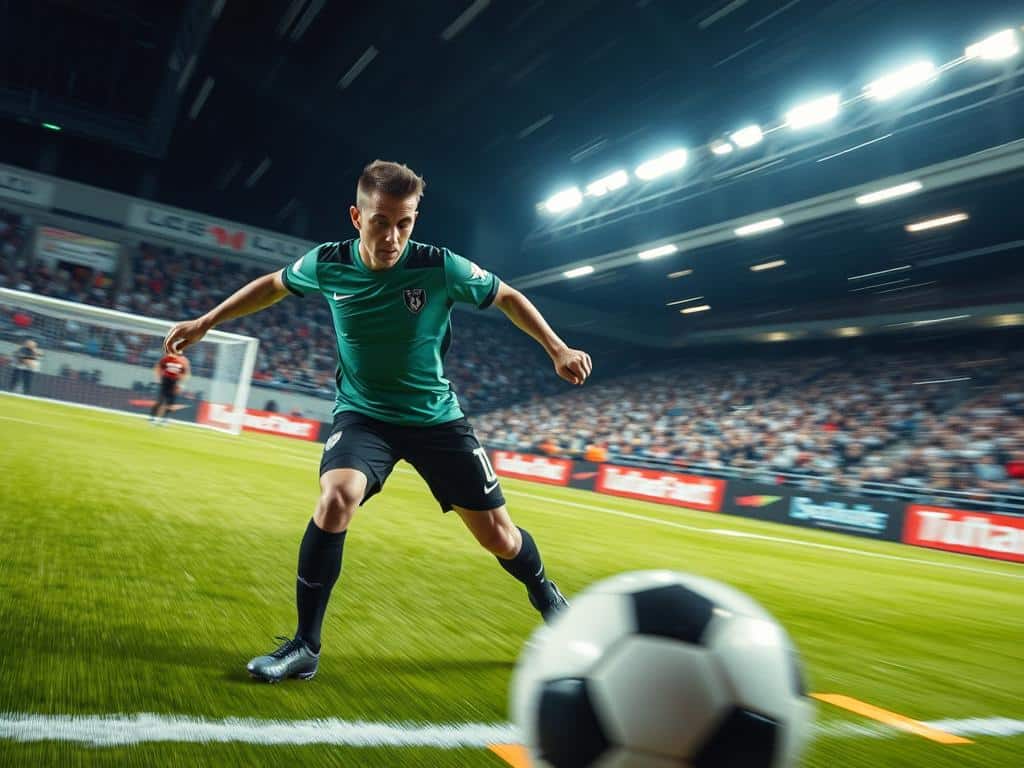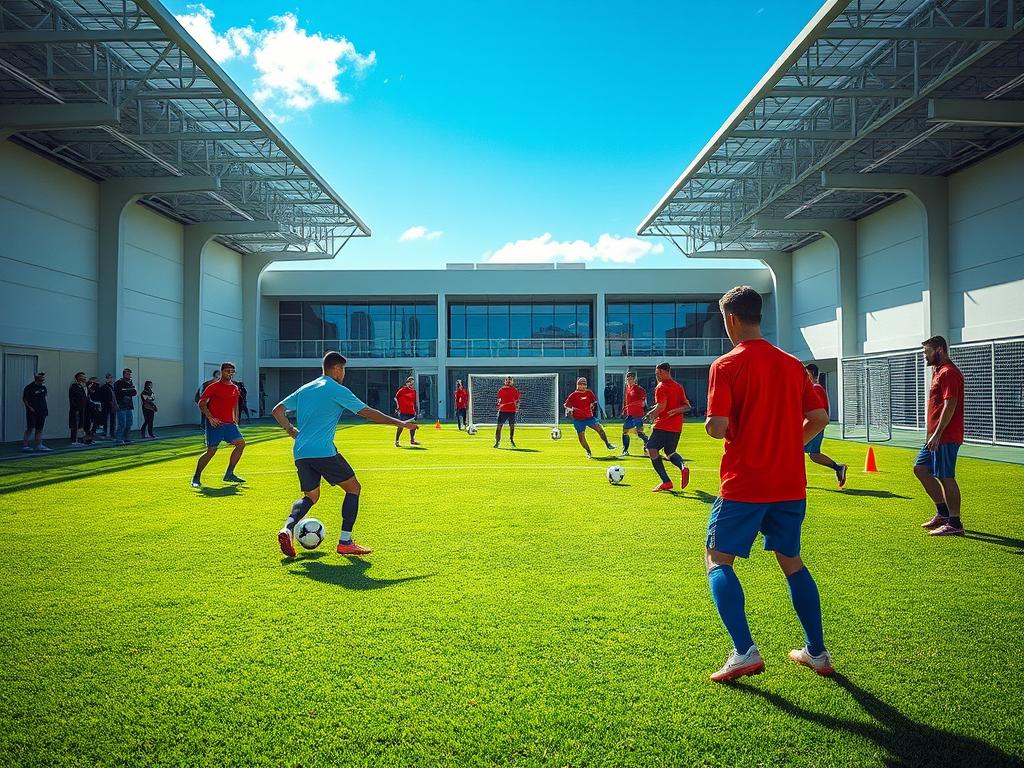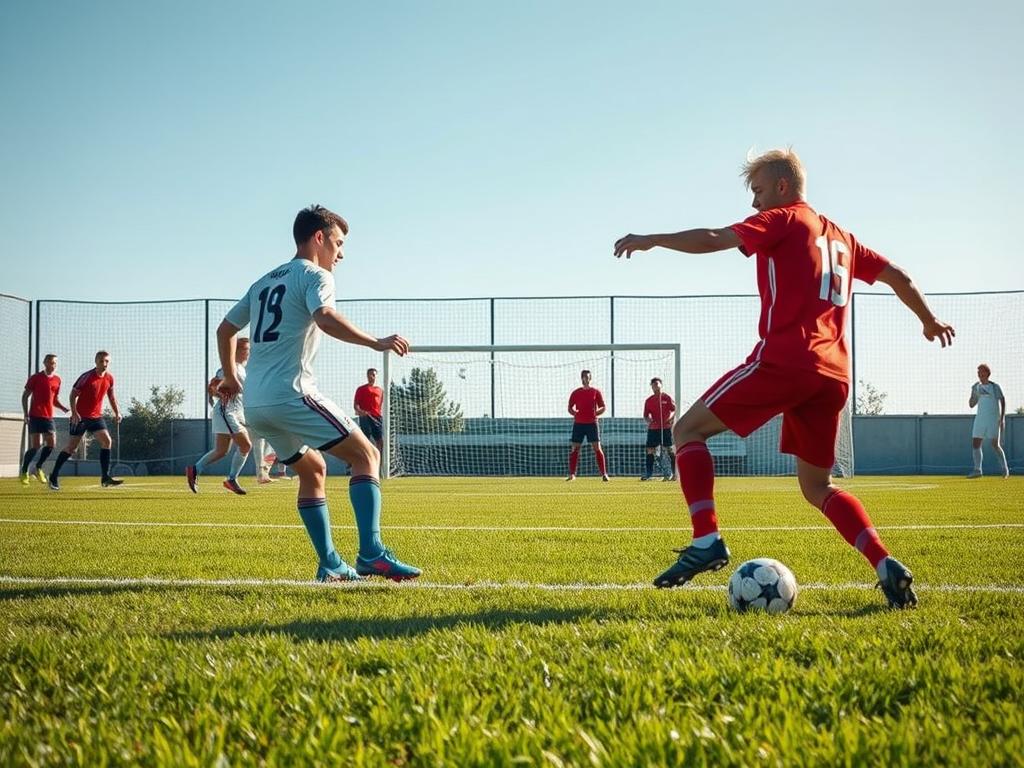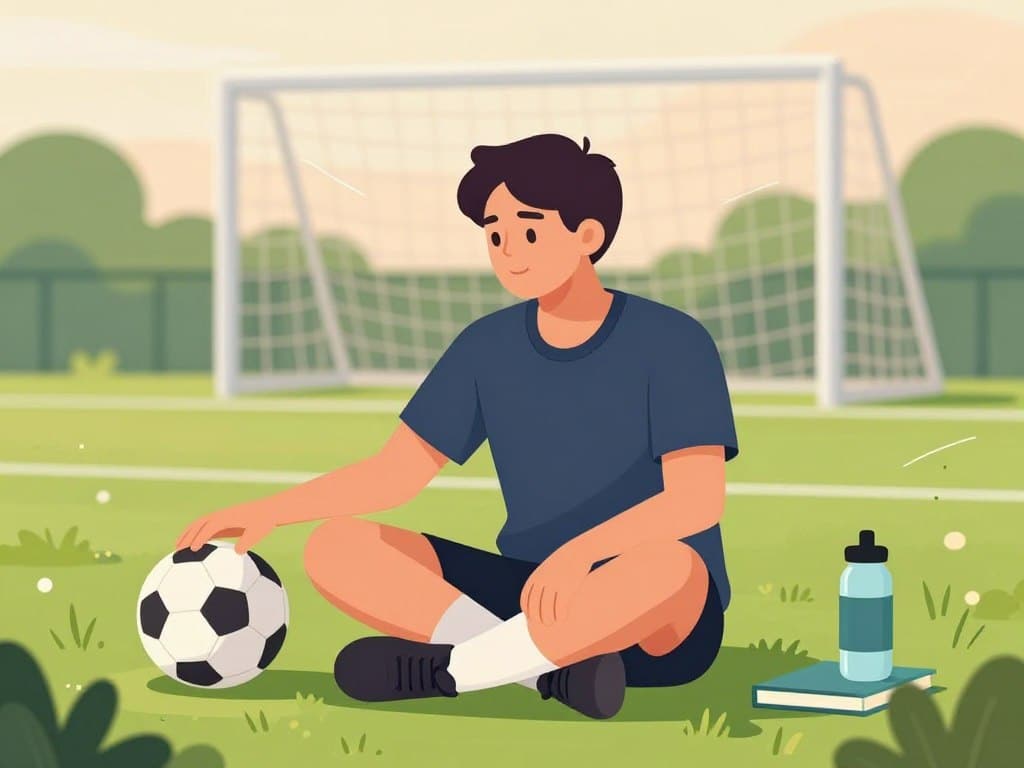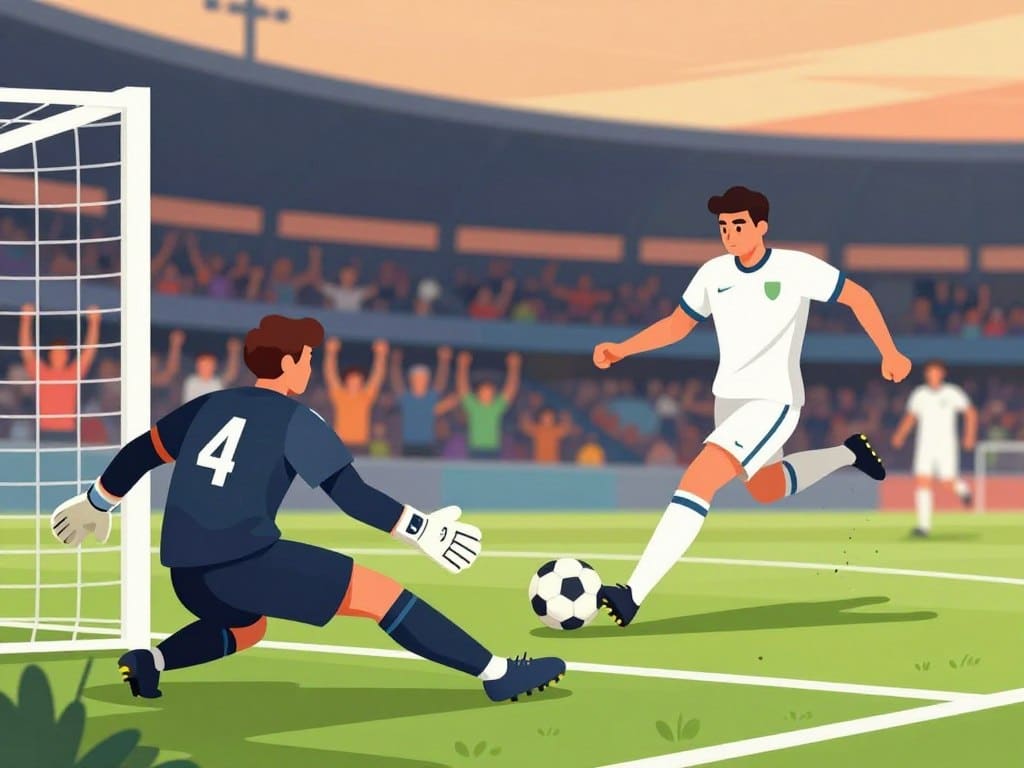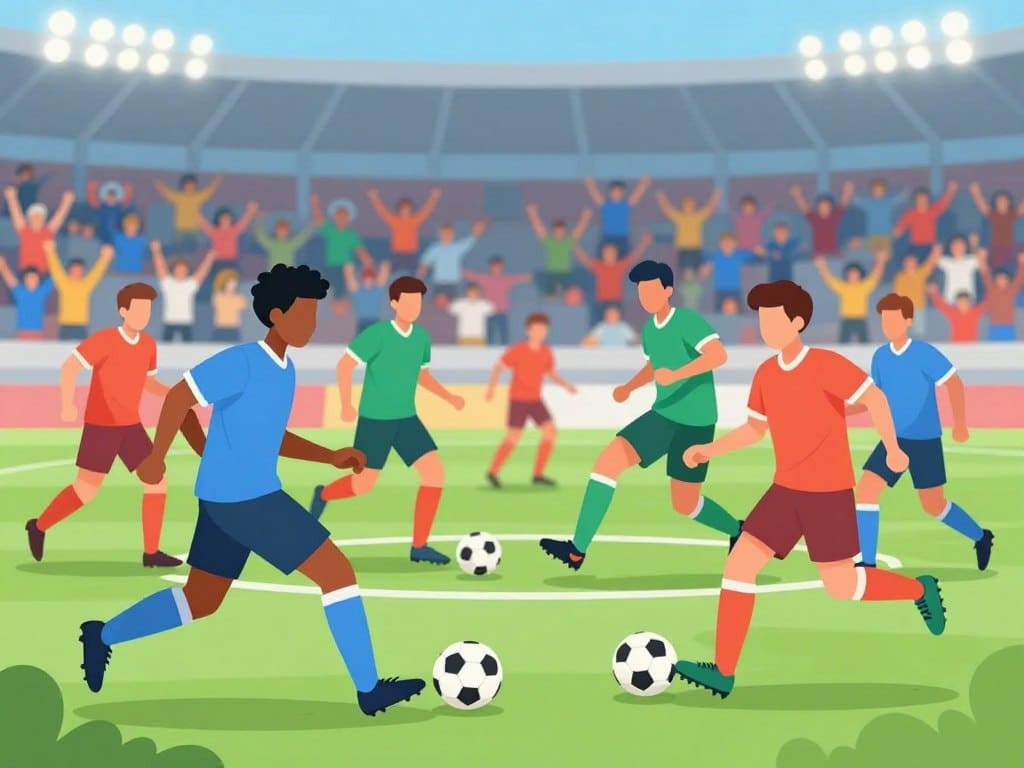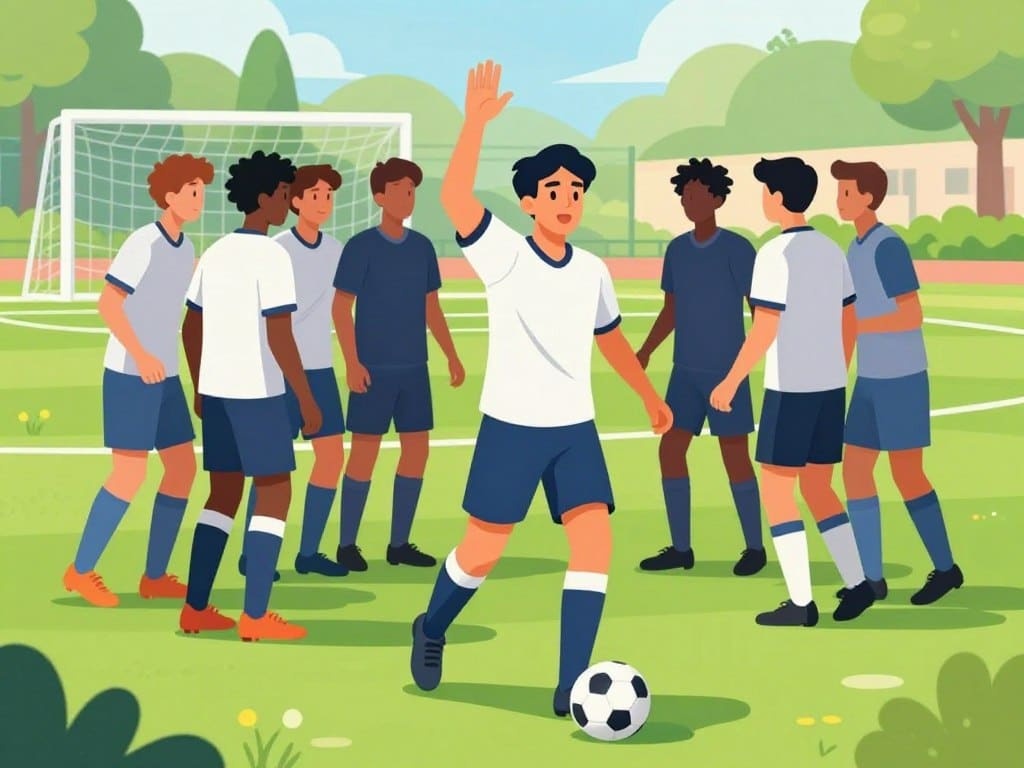In soccer, reaction time can be the difference between winning and losing. Quick decisions on the field can decide who scores, saves, or steals the ball. Having fast reflexes is not just a plus; it’s a must for top athletic performance. Let’s explore why soccer reaction time is so vital and how it affects every part of the game.
Consider this: a goalkeeper’s fast dive, a defender’s timely tackle, or a striker’s quick shot. These moments rely on reaction time. Studies reveal that quicker reactions give players a big advantage in those critical 50/50 ball possession battles. It’s not just about speed; it’s about being consistently fast under pressure.
But reaction time isn’t just about physical quickness; it’s also mental. Players who quickly process visual information make better field decisions. This skill enhances defensive strength and opens up more scoring chances. That’s why coaches work on drills that sharpen both the mind and body, aiming to reduce reaction times to mere milliseconds.
Ready to improve your game? Understanding the importance of reaction time is your first step to soccer excellence. Whether you play for fun or aim for the pros, bettering your reflexes could unlock your full soccer ability.
Understanding Reaction Time Fundamentals in Soccer
In soccer, quick thinking and fast reactions are key. Players need sharp reaction times to do well. Let’s explore the science behind these quick decisions.
The Science Behind Neural Response in Athletes
A soccer player’s brain works like a supercomputer. It processes information at incredible speed. When a player sees the ball, their brain responds fast.
Signals quickly move through the nervous system, telling muscles to act. This happens in milliseconds, quicker than blinking!
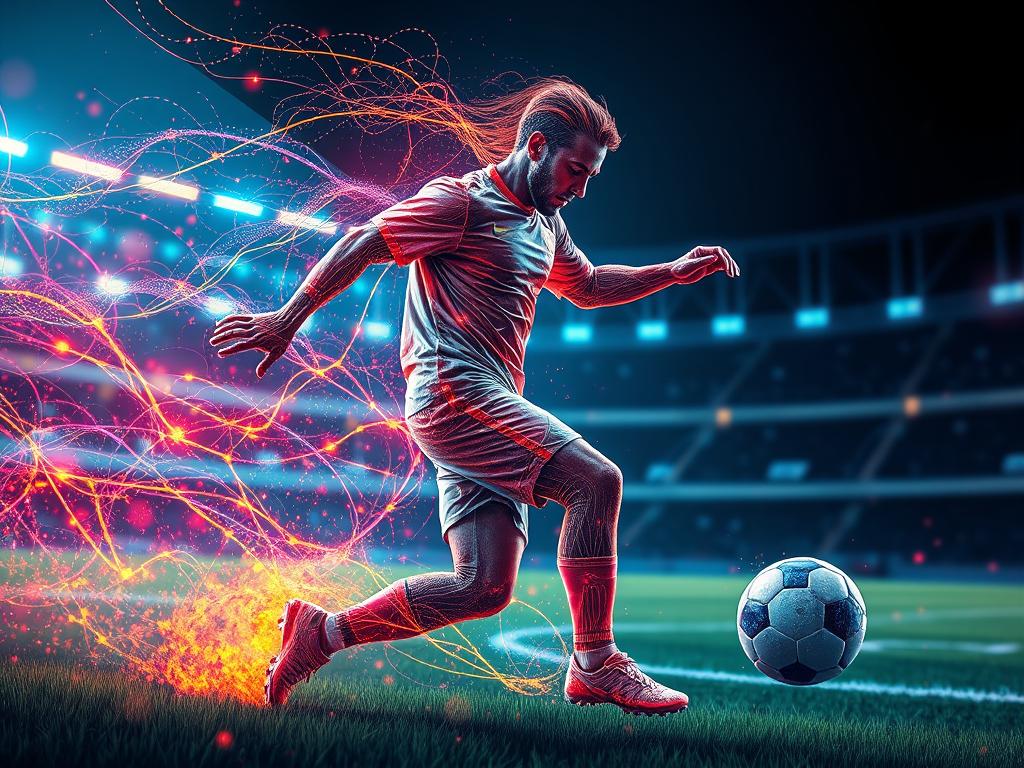
How Soccer Players Process Visual Information
Visual processing is vital in soccer. Players must quickly scan the field and spot teammates. They track the ball too.
Their brains make sense of all this data fast. The better a player’s visual processing, the quicker they react.
The Role of Muscle Memory in Quick Reactions
Muscle memory is key in soccer reactions. Through practice, players train their bodies to respond quickly. This leads to faster, smoother movements.
The more a player practices, the stronger their muscle memory gets.
Cognitive performance brings it all together. It’s not just about speed. It’s about making smart, quick decisions. Top soccer players combine speed, skill, and smarts to outmaneuver opponents.
Why Is Reaction Time Important in Soccer
Reaction time is key in soccer. It gives players an edge on the field. A coach with over 20 years of experience says quick reactions often lead to winning games. This skill is important for both defense and offense.
Defenders need quick reactions to stop attacks. They make split-second decisions to tackle or intercept passes. Goalkeepers also rely on fast reflexes to save shots in a split second.
Attackers benefit from fast reactions too. Strikers and midfielders use their agility to control passes and make smart choices. Quick thinking can mean the difference between scoring or missing a goal.
- Increases chances of winning 50/50 ball challenges
- Improves defensive positioning and threat prevention
- Enhances goalkeeper save capabilities
- Boosts attacking play and goal-scoring opportunities
Better reaction times lead to smarter decisions on the field. Players can make quicker choices during pressure moments. This is critical in set pieces, where quick responses can surprise opponents.
Coaches use different training methods to improve reaction time. They include vision drills, reaction exercises, and video analysis. Some teams even use advanced technologies like the ROX System for gamified exercises to boost speed.
Critical Moments Where Split-Second Decisions Matter
Soccer is all about fast reactions. Players face many situations where a quick choice can change the game. Let’s look at the key areas where fast thinking is essential.
Goalkeeper Reaction Requirements
Goalkeepers are the last defense. They must have incredible reflexes to make goalkeeper saves against shots over 100 mph. Their quick reactions often decide if the ball goes in or not.
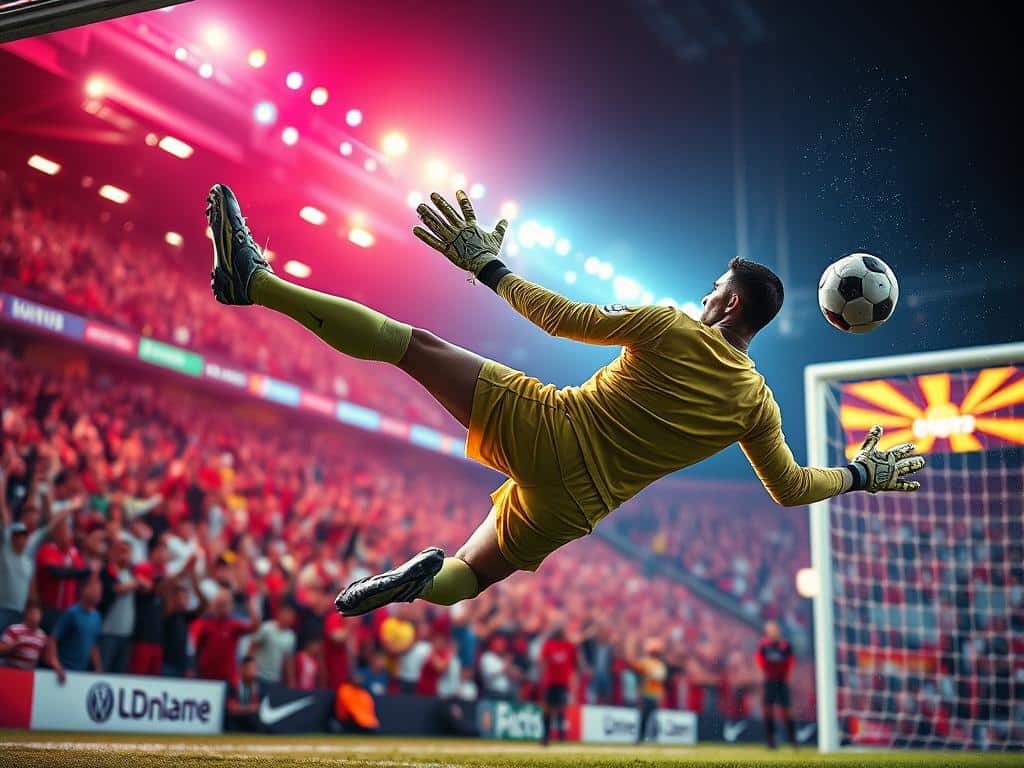
Defensive Positioning and Quick Responses
Defensive tactics need fast decisions. Players must quickly move based on opponents and the ball’s path. A delay can give the other team a chance to score.
Offensive Play and Ball Control
Attackers need quick reactions to control the ball. Dribbling, passing, and shooting depend on fast choices. These moments often come from being quicker than opponents.
Set Piece Reactions
Set pieces are intense moments for quick reactions. Players must anticipate and adjust fast. These situations can change the game’s outcome.
To do well in these moments, players must stay focused. Mental training is as vital as physical. Reviewing games and practicing scenarios helps improve quick decision-making.
Speed and Consistency: The Twin Pillars of Performance
Soccer players need to be fast and consistent. These traits are key to being reliable on the field. Coaches look at speed as how quickly a player reacts. This speed is critical for making fast decisions during games.
Being consistent is also vital. Players who react the same way every time are more dependable. But, if a player’s reactions vary a lot, it might mean they’re struggling. Coaches use these signs to guide training and check how players are doing.
Eye-foot coordination is essential in soccer. It helps players kick the ball accurately. Quick agility is also important, allowing for fast decisions and quick changes in direction. These abilities help players perform well, even when under pressure.
- Balance exercises improve stability, preventing falls during play
- Core strength training boosts balance and stability while moving
- Agility ladder workouts increase foot speed and coordination
By focusing on speed and consistency, players can improve their skills. In soccer, being quick and steady are both essential for success.
Training Methods to Enhance Soccer Reaction Time
To improve reaction time in soccer, players need both physical and mental training. They can get better through specific drills. These drills help with quick decisions, which are key for winning and scoring.
Mental training is also important. Exercises that improve how players see the game help them react faster. The ROX system by A-Champs uses games to boost reaction speed.
What players eat also matters. Some use supplements, like zeaxanthin, to get faster. Products like EyePromise Vizual Edge can help. But, don’t forget, sleep is essential too. Lack of sleep can slow down reaction times.
By practicing regularly, getting enough rest, and eating well, players can see big improvements. This quick thinking can be the difference in soccer’s fast-paced game.

